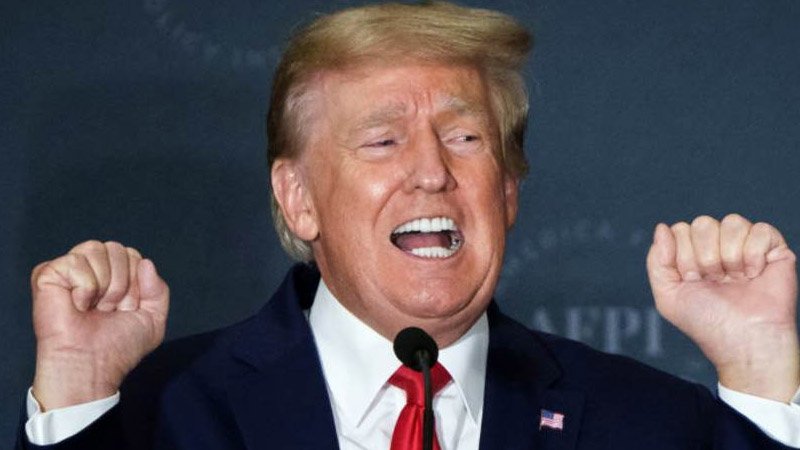
Image Source: Getty Images | Photo by Drew Angerer
Donald Trump’s recent string of interview cancellations and no-shows has sparked speculation about his physical and mental fitness for office, with some political analysts hinting that it might be more than just fatigue. Alexi McCammond, opinion editor for The Washington Post, and Eugene Daniels, Politico White House correspondent, recently discussed the issue on MSNBC, raising concerns about Trump’s ability to effectively run in the 2024 presidential election.
The conversation took shape after Trump canceled a planned interview on a podcast, citing exhaustion. Vice President Kamala Harris had appeared on the same podcast, which added to the scrutiny around Trump’s absence. Daniels, who reported on the incident, remarked that the excuse of exhaustion “perked some ears” among voters and political observers who are now questioning Trump’s readiness for office.
“Interviews come up and come down all the time. There was never a set date. But the fact that the Trump adviser told the Shade Room that he was exhausted did perk some ears, including mine,” Daniels told MSNBC host Alex Witt. He also pointed out that Trump’s behavior at recent events has added fuel to the speculation.
Daniels referenced a recent rally where Trump, instead of delivering a speech, spent 39 minutes listening to music and “bouncing around” the stage, leading some to wonder whether he was still capable of handling the pressures of the presidency. “Some of his speeches, even some Republicans would tell us that they feel like they are becoming less coherent when he is in front of the public,” Daniels added. This has prompted voters and strategists alike to question Trump’s mental fitness and overall ability to campaign.
“The anger, I would argue, is not just an extension of cognitive fatigue, but I would imagine this man has untreated PTSD after two apparent assassination attempts. It is no secret that that would be a traumatic event for anyone, but the symptoms and side effects of untreated PTSD include but are not limited to fatigue, not sleeping well, and being angry and having outbursts in their interpersonal relationships.” She added, “I think we are seeing textbook examples of those things from Donald Trump on the trail.”
Another red flag, according to Daniels, is Trump’s growing anger, which he believes has become more pronounced in recent months. He noted that Trump “looks angrier than he ever has,” which could be another indicator of the strain the former president is under as he gears up for a potential 2024 campaign.
McCammond echoed these concerns, suggesting that Trump’s apparent mental decline should be a significant issue for voters. “The anger should be alarming to voters, just as his mental acuity and apparent cognitive decline should be apparent and concerning to voters,” she stated during the MSNBC segment.
McCammond also highlighted the importance of this issue in the context of the upcoming election. “When I launched my podcast last month, the first episode tackled this very question, which has become the central question of the 2024 election: Is Donald Trump okay? Is he mentally fit to be President of the United States?”
As the 2024 election cycle approaches, these concerns surrounding Trump’s health and mental acuity are likely to remain a focal point of debate. With growing scrutiny over his public appearances, the questions raised by both Daniels and McCammond may shape the narrative surrounding Trump’s candidacy moving forward.
For now, the former president’s team continues to downplay these concerns, attributing his recent interview cancellations to fatigue and the usual demands of the campaign trail. However, as more instances of unusual behavior come to light, the question “Is Donald Trump okay?” may continue to resonate with voters and political strategists alike.


